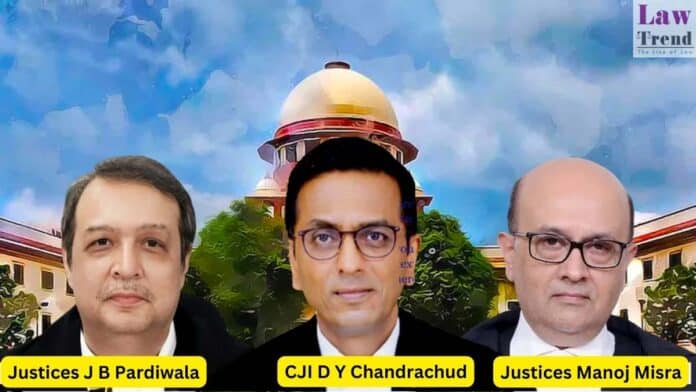The Supreme Court of India has rejected a plea to permit Hindi for proceedings in the High Courts and the Supreme Court, maintaining the mandate of English as the official language in judicial settings as per Article 348 of the Constitution. The petition, spearheaded by Kishan Chand Jain, was dismissed for lacking substance, as stated by Chief Justice of India (CJI) Dr. D.Y. Chandrachud.
During the proceedings, CJI Chandrachud, joined by Justices J.B. Pardiwala and Manoj Misra, questioned the practicality and fairness of introducing Hindi exclusively, considering India’s vast linguistic diversity. “Why only Hindi?” the Chief Justice inquired, underscoring the nationwide jurisdiction of the Court which caters to a multitude of linguistic groups.
Jain, advocating for the inclusion of Hindi, argued for what he termed “very limited relief,” which was swiftly countered by CJI Chandrachud’s pointed query, “How can you challenge the validity of Article 348 of the Constitution? It is part of the original Constitution.” The petition, which sought to frame the language issue as one of fundamental rights and access to justice, failed to sway the bench, leading to a prompt dismissal.
Article 348(1) clearly states that all proceedings in the Supreme Court and each High Court shall be conducted in English. It does allow a state’s Governor, with the President’s consent, to authorize the use of Hindi or any other state language in High Court proceedings, though this does not extend to judgments, decrees, or orders issued.




